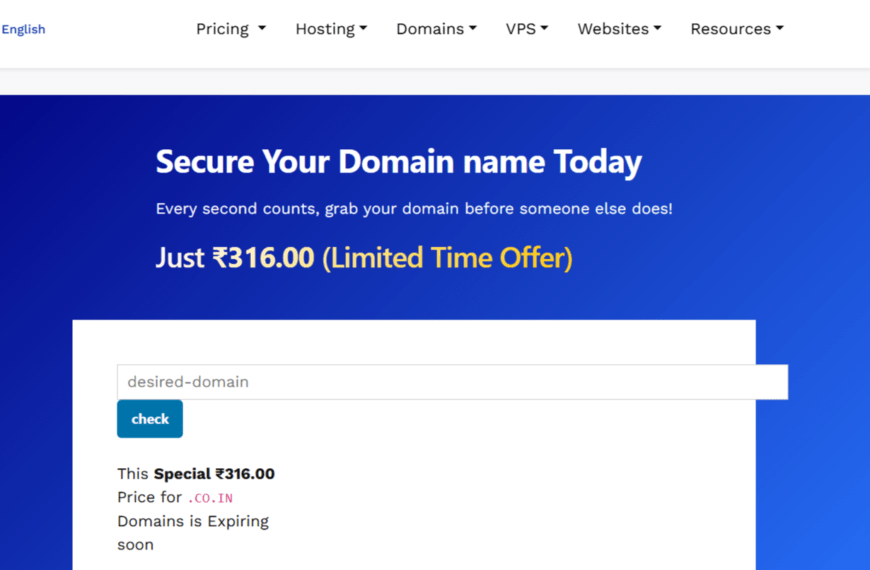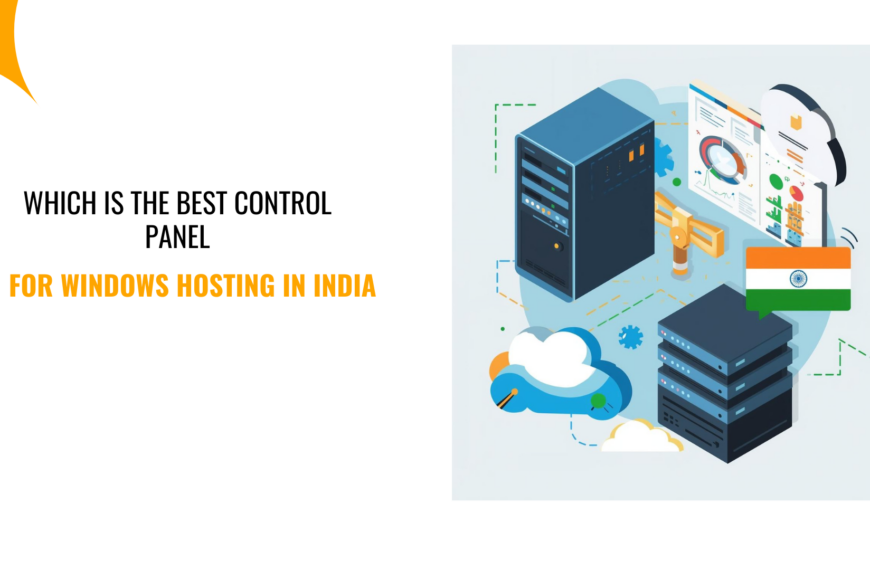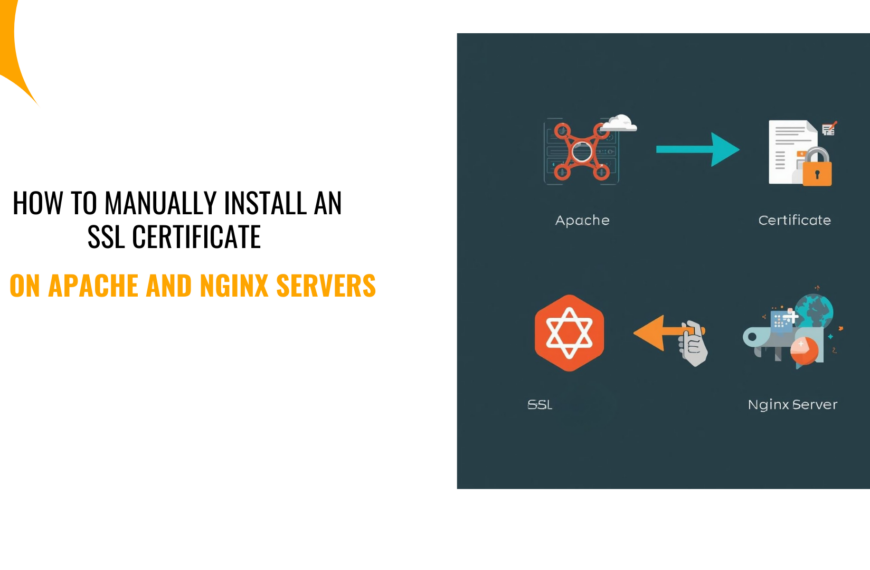You’re sitting in your living room, surrounded by stacks of books, and suddenly, a lightbulb goes off.
What if you could turn your passion for literature into a thriving online business?
Well, my friend, you’re in luck because today, we’re diving deep into how to start an online book selling business in India.
The Indian e-commerce market is booming, and books are riding that wave like a seasoned surfer.
With more people turning to online shopping for their reading fix, there’s never been a better time to jump into this exciting venture.
Whether you’re a bookworm looking to share your love of reading or an entrepreneur seeking a profitable niche, selling books online can be your ticket to success.
In this guide, we’ll walk through everything you need to know to start an online book selling business in India.
What You’ll Need to Start Online Book Selling Business in India
Before we get into the how-to, let’s talk about what you’ll need in your arsenal to start an online book selling business in India.
Think of this as your packing list for a grand adventure – you wouldn’t set off on a trek without the right gear, would you?
Essential Resources and Tools
- A reliable computer or laptop: This will be your command center, so make sure it’s up to the task.
- High-speed internet connection: Because in the world of e-commerce, slow internet is like trying to read a book in the dark.
- Smartphone with a good camera: For taking high-quality photos of your books. Remember, people do judge books by their covers (and photos)!
- Inventory management software: To keep track of your books. Trust me, you don’t want to be counting books manually when you’re selling hundreds a day.
- E-commerce platform: Your digital storefront. Popular options include Shopify, WooCommerce, or even Amazon and Flipkart’s seller platforms.
- Payment gateway: To accept payments securely. Look into options like Razorpay, PayU, or CCAvenue.
- Packaging materials: Because books need TLC during shipping.
Legal Requirements
Now, let’s talk about the not-so-fun but absolutely crucial legal stuff:
- GST Registration: You’ll need this to legally sell online in India.
- Business registration: Consider registering as a sole proprietorship or private limited company.
- PAN Card: Essential for tax purposes.
- Bank account: A separate business account will make your life much easier come tax season.
Initial Investment Considerations
Starting an online book selling business in India doesn’t have to break the bank, but you will need some capital to get the ball rolling:
- Inventory costs: This will likely be your biggest initial expense. Start small and scale up.
- E-commerce platform fees: Many platforms have monthly fees or take a percentage of sales.
- Marketing budget: To get the word out about your awesome new book store.
- Packaging and shipping costs: Factor these into your pricing strategy.
Pro Tip: Start with a budget of ₹50,000 to ₹1,00,000 for a small-scale operation. This should cover your initial inventory, basic equipment, and some marketing costs.
Remember, starting an online book selling business in India is like planting a tree.
It takes time, nurturing, and the right conditions to grow.
But with patience and the right tools, you’ll soon have a thriving business that’s branching out in all directions!
Step-by-Step Instructions to Start Online Book Selling Business in India
Alright, bookworms and business mavens, let’s roll up our sleeves and get into the nitty-gritty of how to start an online book selling business in India.
We’re going to break this down into manageable steps, so you don’t feel like you’re trying to read “War and Peace” in one sitting.
1. Market Research and Niche Selection
First things first, you need to know your market like the back of a well-worn book cover.
- Analyze the current book market in India: What genres are hot? Who’s buying what?
- Identify your target audience: Are you selling to students, fiction lovers, or rare book collectors?
- Choose your niche: Maybe you want to focus on regional language books or academic texts. Find your unique angle.
Tip: Use Google Trends and Amazon’s Best Sellers list to spot what’s popular.
But remember, sometimes the road less traveled can lead to a hidden gem of a niche.
2. Business Registration and Legal Compliance
Time to make it official and get all your legal ducks in a row.
- Register your business: Choose between sole proprietorship, partnership, or private limited company.
- Get your GST registration: This is non-negotiable for online selling in India.
- Apply for any necessary licenses: Depending on your location and business type.
Warning: Skipping this step is like trying to sell books without covers. It might work for a while, but eventually, you’ll run into trouble.
3. Sourcing Books
Now for the fun part – getting your hands on those books!
- Find reliable suppliers: Look into wholesale distributors, publishers, or even consider buying bulk lots from individuals.
- Explore different sourcing methods: New books, used books, rare editions – mix it up!
- Negotiate prices: Every rupee saved on sourcing is a rupee earned in profit.
Pro Tip: Start with a mix of popular titles and niche books to test the market.
Use tools like Keepa to track price history on Amazon and gauge demand.
Read also: 20+ Best Places To Buy Books Online In India
4. Setting Up Your Online Store
Time to build your digital bookshelf!
- Choose your e-commerce platform: Shopify, WooCommerce, or marketplace platforms like Amazon or Flipkart.
- Design your website: Make it user-friendly and visually appealing. Think of it as the cover of your business ‘book’.
- Set up payment gateways: Ensure smooth transactions for your customers.
- Optimize for mobile: Because let’s face it, most of us are shopping from our phones these days.
Recommended Tool: If you’re going the self-hosted route, WooCommerce with WordPress offers great flexibility and control.
Read also: 7 Best Payment Gateway for WordPress in India
5. Pricing Strategy
This is where the rubber meets the road in your journey to start an online book selling business in India.
- Research competitor pricing: Know the market, but don’t just copy others.
- Factor in all costs: Sourcing, shipping, platform fees – don’t forget anything!
- Consider dynamic pricing: Adjust prices based on demand and seasonality.
Tip: Don’t be afraid to experiment with pricing. Use A/B testing to find the sweet spot that maximizes both sales and profits.
6. Marketing and Promotion
You’ve got the books, now let’s get the customers!
- Leverage social media: Instagram, Facebook, Twitter – show off those beautiful books!
- Start a blog: Share book reviews, reading lists, and literary news to establish authority.
- Email marketing: Build a subscriber list and keep them engaged with regular updates and offers.
- SEO optimization: Make sure book lovers can find you when they’re searching online.
Warning: Don’t spam your audience. Quality content and genuine engagement will take you further than aggressive selling tactics.
7. Order Fulfillment and Shipping
The logistics of getting books from your shelves to your customers’ hands.
- Develop an efficient packing process: Protect those precious pages!
- Choose reliable shipping partners: Speed and care are key here.
- Offer multiple shipping options: From economy to express, cater to different customer needs.
Pro Tip: Consider outsourcing fulfillment as you grow. It can save you time and headaches in the long run.
8. Customer Service
Last but not least, keep those bookworms happy!
- Set up multiple contact channels: Email, phone, chat – be accessible.
- Develop clear policies: For returns, exchanges, and refunds.
- Respond promptly: Aim to address issues within 24 hours.
- Go the extra mile: A handwritten thank-you note can turn a one-time buyer into a loyal customer.
Remember, starting an online book selling business in India is a marathon, not a sprint.
Take it one step at a time, and before you know it, you’ll be running a thriving online bookstore that would make any bibliophile proud!
Tips To Start A Profitable Online Booke Selling Business in India
Now that we’ve covered the basics of how to start an online book selling business in India, let’s talk about how to take it from good to great.
These tips are like the plot twists that turn a decent story into a page-turner.
Know Your Books Inside Out
- Read some of the books you’re selling. It’ll help you write better descriptions and connect with customers.
- Stay updated on literary trends and upcoming releases.
Build Relationships with Publishers and Distributors
- Attend book fairs and industry events.
- Negotiate better deals as your business grows.
Offer Exceptional Customer Service
- Respond to queries promptly and professionally.
- Go above and beyond – maybe include a bookmark or a personalized note with each order.
Leverage the Power of Content Marketing
- Start a blog with book reviews, author interviews, and reading lists.
- Create engaging social media content to build a community around your brand.
Optimize Your Website Continuously
- Regularly update your product descriptions and images.
- Use A/B testing to improve your website’s conversion rate.
Diversify Your Inventory
- Don’t put all your eggs in one basket (or all your books in one genre).
- Consider expanding into related products like bookmarks, reading lights, or e-readers.
Implement a Loyalty Program
- Reward repeat customers with discounts or exclusive offers.
- Consider a points system that can be redeemed for books or merchandise.
Stay Compliant and Organized
- Keep meticulous records of your sales and expenses.
- Stay updated on any changes in e-commerce regulations in India.
Embrace Technology
- Use inventory management software to keep track of your stock.
- Implement chatbots for basic customer service queries.
Network with Other Booksellers
Join online forums or local business groups.
Collaborate on promotions or events.
Pro Tip: Remember, success in the online book selling business in India isn’t just about selling books – it’s about creating an experience for your customers.
Make them feel like they’re stepping into a cozy bookshop every time they visit your website.
Just remember, like any good book, building a successful business takes time, patience, and a whole lot of heart.
Keep turning those pages, and success will follow!
Common Mistakes to Avoid
As you embark on your journey to start an online book selling business in India, be aware of the potential pitfalls.
Think of these as the plot holes you want to avoid in your business story.
Ignoring the Importance of Quality Product Images
- Poor quality images can make even the most interesting books look unappealing.
- Invest in good lighting and a decent camera or smartphone for product photography.
Neglecting Book Descriptions
- Vague or copy-pasted descriptions won’t entice readers.
- Write unique, engaging descriptions that highlight why each book is worth reading.
Overpricing or Underpricing Your Books
- Research market prices and factor in all your costs before setting prices.
- Don’t be afraid to adjust prices based on demand and competition.
Poor Inventory Management
- Overselling can lead to disappointed customers and negative reviews.
- Invest in a good inventory management system to keep track of your stock.
Neglecting SEO
- Without proper SEO, your online bookstore might as well be hidden in a dark corner of the library.
- Use relevant keywords in your product titles and descriptions.
Ignoring Customer Feedback
- Customer reviews are gold. Use them to improve your service and products.
- Respond to both positive and negative feedback professionally.
Failing to Diversify Sales Channels
- Don’t rely solely on one platform or marketplace.
- Explore options like your own website, social media selling, and multiple e-commerce platforms.
Underestimating Shipping Costs
- Factor in packaging and shipping costs when pricing your books.
- Consider offering free shipping above a certain order value to encourage larger purchases.
Neglecting Legal and Tax Obligations
- Make sure you’re compliant with all relevant e-commerce and tax laws in India.
- Keep accurate records of all transactions for tax purposes.
Trying to Do Everything Yourself
As your business grows, learn to delegate or outsource tasks.
Consider hiring help for tasks like order fulfillment or customer service as you scale.
Warning: One of the biggest mistakes when starting an online book selling business in India is underestimating the competition.
The e-commerce space is crowded, so you need to find ways to stand out and offer unique value to your customers.
Remember, mistakes are part of the learning process.
The key is to learn from them and adapt your strategy accordingly.
Troubleshooting Issues
Even the best-laid plans can hit a snag, and your journey to start an online book selling business in India is no exception.
Let’s tackle some common issues you might face and how to solve them.
Think of this as your business first-aid kit – always good to have on hand!
1. Low Website Traffic
Problem: Your online bookstore is open, but nobody’s browsing.
Solution:
- Boost your SEO efforts. Use relevant keywords in your product descriptions and blog posts.
- Increase your social media presence. Share engaging content regularly.
- Consider paid advertising on platforms like Google Ads or Facebook.
- Collaborate with book bloggers or bookstagrammers for shoutouts.
2. High Cart Abandonment Rate
Problem: Customers are adding books to their cart but not completing the purchase.
Solution:
- Simplify your checkout process. The fewer steps, the better.
- Offer multiple payment options, including popular Indian methods like UPI.
- Send cart abandonment emails to remind customers of their selections.
3. Inventory Management Issues
Problem: You’re either overstocked or running out of popular titles.
Solution:
- Implement an inventory management system to track stock levels in real-time.
- Use data analytics to predict demand and adjust your ordering accordingly.
- Consider drop-shipping for some titles to reduce inventory risk.
4. Negative Customer Reviews
Problem: You’re receiving poor reviews, potentially damaging your reputation.
Solution:
- Respond promptly and professionally to all negative reviews.
- Address the specific issues mentioned and offer solutions.
- Use feedback to improve your service and prevent similar issues in the future.
- Encourage satisfied customers to leave positive reviews to balance things out.
5. Shipping Delays
Problem: Customers are complaining about late deliveries.
Solution:
- Partner with reliable courier services known for timely deliveries.
- Implement a tracking system so customers can monitor their orders.
- Be transparent about expected delivery times on your website.
- Consider offering expedited shipping options for an additional fee.
6. Technical Website Issues
Problem: Your website is slow, glitchy, or frequently down.
Solution:
- Invest in reliable hosting with good uptime guarantees.
- Optimize your website for speed by compressing images and minimizing plugins.
- Regularly update your e-commerce platform and plugins.
- Have a tech support contact on hand for emergencies.
7. Price Competition
Problem: Larger competitors are undercutting your prices.
Solution:
- Focus on niche markets or rare books where price competition is less fierce.
- Offer value-added services like gift wrapping or personalized recommendations.
- Build a loyalty program to encourage repeat customers.
- Highlight your unique selling points, such as expert curation or excellent customer service.
Pro Tip: When troubleshooting issues in your online book selling business in India, always put yourself in the customer’s shoes.
What would make you happy as a book buyer?
Implement those solutions, and you’ll be well on your way to creating a beloved online bookstore.
Remember, every problem is an opportunity to improve your business.
Stay proactive, be willing to adapt, and keep learning.
Alternatives To Selling Books Online in India
When it comes to starting an online book selling business in India, there’s more than one way to write your success story.
Let’s talk about some alternative business models and strategies that might fit your goals and resources better.
1. Dropshipping Model
What it is: You list books on your website but don’t hold inventory. When an order comes in, you purchase the book from a supplier who ships directly to the customer.
Pros:
- Low initial investment
- No need for storage space
- Wider range of titles available
Cons:
- Lower profit margins
- Less control over shipping and quality
- Potential for out-of-stock issues
When to use: If you’re starting with limited capital or storage space, or want to test the market before investing in inventory.
2. Print-on-Demand Books
What it is: Partner with a print-on-demand service to offer custom-printed books, including self-published works.
Pros:
- No inventory required
- Opportunity to support indie authors
- Unique product offering
Cons:
- Higher per-unit costs
- Longer production times
- Limited to certain types of books
When to use: If you want to focus on niche markets or support self-published authors.
3. Subscription Box Service
What it is: Curate a monthly box of books based on subscribers’ preferences.
Pros:
- Predictable recurring revenue
- Build a community of loyal readers
- Opportunity for partnerships with publishers
Cons:
- Requires excellent curation skills
- Need to manage subscriptions and renewals
- Higher operational complexity
When to use: If you have a knack for curation and want to create a more engaging customer experience.
4. Hybrid Online-Offline Model
What it is: Combine an online store with a physical bookshop or pop-up events.
Pros:
- Broader market reach
- Opportunity for in-person customer engagement
- Can leverage online presence to drive offline sales and vice versa
Cons:
- Higher operational costs
- Requires managing both online and offline inventories
- More complex logistics
When to use: If you’re in a location with good foot traffic and want to create a more immersive brand experience.
5. Niche Specialization
What it is: Focus on a specific genre, language, or type of book (e.g., rare books, academic texts, or children’s literature).
Pros:
- Less direct competition
- Can become a go-to expert in your niche
- Potentially higher profit margins
Cons:
- Limited market size
- Requires deep knowledge of the niche
- May need to work harder to find suppliers
When to use: If you have expertise or passion for a particular area of literature and want to serve a dedicated audience.
6. Marketplace Seller
What it is: Instead of setting up your own website, sell exclusively on established marketplaces like Amazon, Flipkart, or Snapdeal.
Pros:
- Access to a large customer base
- Less technical setup required
- Built-in trust factor of the marketplace
Cons:
- High competition
- Platform fees can eat into profits
- Less control over the customer experience
When to use: If you want to start quickly and test the waters before investing in your own e-commerce platform.
Pro Tip: When considering alternatives to start your online book selling business in India, think about your strengths, resources, and long-term goals.
It’s okay to start with one model and evolve as you learn and grow.
Remember, the best model for you is the one that aligns with your passions and plays to your strengths.
Don’t be afraid to mix and match elements from different models to create a unique approach that sets your online book selling business apart in the bustling Indian e-commerce landscape.
Final Thoughts
As we close the chapter on this guide to starting an online book selling business in India, let’s take a moment to reflect on the journey we’ve mapped out.
Like any good book, the story of your business will be filled with twists, turns, and hopefully, a triumphant ending.
We’ve covered a lot of ground, from the nuts and bolts of setting up your online store to the finer points of customer service and marketing.
Remember, success in this field isn’t just about selling books – it’s about creating a haven for book lovers, a place where stories come to life and readers find their next great adventure.
Key takeaways to keep in mind as you embark on your online book selling journey:
- Know your market: Understand the reading habits and preferences of Indian consumers.
- Find your niche: Whether it’s rare books, regional literature, or academic texts, carve out your unique space.
- Embrace technology: Use the right tools to manage inventory, process orders, and engage with customers.
- Provide exceptional service: In a competitive market, your customer experience can set you apart.
- Stay adaptable: The e-commerce landscape is always evolving, so be ready to pivot and try new strategies.
Starting an online book selling business in India is more than just a business venture – it’s an opportunity to spread knowledge, ignite imaginations, and connect people through the power of words.
As you build your online bookstore, remember that each book you sell has the potential to change someone’s life, spark a new idea, or simply provide a moment of joy.
So, are you ready to write your own success story in the world of online book selling?
The page is blank, the pen is in your hand, and the possibilities are endless.
Your adventure in the wonderful world of online book selling in India starts now.
Happy selling, and may your shelves (virtual and otherwise) always be filled with captivating tales and eager readers!
Read also:
- How to Start a Successful Online Business in India
- 11 Profitable Online Businesses in India (Zero Initial Investment)
- How to Start Online Clothes Business in India
FAQs
To help you on your journey to start an online book selling business in India, here are answers to some frequently asked questions:
Q: Do I need a large inventory to start an online book selling business in India?
A: Not necessarily. You can start small and grow your inventory as your business expands. Alternatively, consider dropshipping or print-on-demand models to minimize initial inventory costs.
Q: What are the legal requirements for starting an online book selling business in India?
A: Key requirements include business registration, GST registration, and compliance with e-commerce regulations. It’s advisable to consult with a legal professional to ensure full compliance.
Q: How can I compete with large online retailers selling books in India?
A: Focus on niche markets, provide exceptional customer service, offer unique curation or expertise, and build a community around your brand. Personalization and a tailored experience can set you apart.
Q: What’s the best e-commerce platform for selling books online in India?
A: Popular options include Shopify, WooCommerce, and Magento. The best choice depends on your technical skills, budget, and specific business needs. You can also consider selling on established marketplaces like Amazon or Flipkart.
Q: How do I handle returns and exchanges for books?
A: Develop a clear, customer-friendly return policy. Consider factors like return shipping costs, the condition of returned books, and the timeframe for returns. Make sure your policy complies with Indian e-commerce regulations.
Q: Is it better to focus on new books or used books when starting out?
A: This depends on your target market and sourcing capabilities. New books might be easier to source but have lower profit margins. Used books can offer higher margins but require more effort in sourcing and quality control.
Q: How important is social media for an online book selling business in India?
A: Very important! Social media platforms like Instagram, Facebook, and X are excellent for showcasing your books, engaging with readers, and building a community around your brand. They’re also great for running promotions and driving traffic to your online store.
Remember, starting an online book selling business in India is a journey.
Don’t be afraid to ask questions, seek advice from fellow booksellers, and continuously learn and adapt as you grow your business.
Happy selling!
 Web HostingBudget-friendly shared hosting plans
Web HostingBudget-friendly shared hosting plans Domains SearchFrom .com to unique country domains, explore and register extensions worldwide.
Domains SearchFrom .com to unique country domains, explore and register extensions worldwide. WordPress HostingPower your blog or business with WordPress hosting.
WordPress HostingPower your blog or business with WordPress hosting. Email HostingSimple, secure email hosting that helps you stay connected and professional.
Email HostingSimple, secure email hosting that helps you stay connected and professional. Reseller HostingStart your own hosting business with easy and reliable reseller hosting plans.
Reseller HostingStart your own hosting business with easy and reliable reseller hosting plans. AffiliateJoin our affiliate program and earn commissions every time you bring in new customers.
AffiliateJoin our affiliate program and earn commissions every time you bring in new customers. cPanel HostingHosting powered by cPanel, the world’s most user-friendly control panel.
cPanel HostingHosting powered by cPanel, the world’s most user-friendly control panel. Windows HostingBuilt for Windows applications and websites
Windows HostingBuilt for Windows applications and websites IN Domain PricesDon’t miss out on the best domain deals in India!
IN Domain PricesDon’t miss out on the best domain deals in India! WHOIS LookupFind out who owns a domain name with a quick and easy WHOIS search.
WHOIS LookupFind out who owns a domain name with a quick and easy WHOIS search. Domain TransferTransfer your domain to us and enjoy reliable support every step of the way.
Domain TransferTransfer your domain to us and enjoy reliable support every step of the way. .Com DomainGet the most trusted domain for worldwide credibility
.Com DomainGet the most trusted domain for worldwide credibility All TldsSearch and register domain extensions worldwide.
All TldsSearch and register domain extensions worldwide. Managed VPS HostingNot a tech expert? Choose our fully managed VPS service.
Managed VPS HostingNot a tech expert? Choose our fully managed VPS service. Dedicated ServersTake full power and total control of your own physical server.
Dedicated ServersTake full power and total control of your own physical server.







